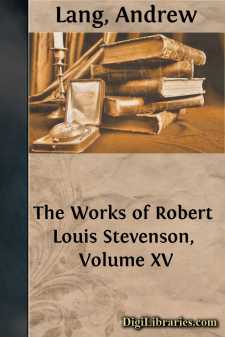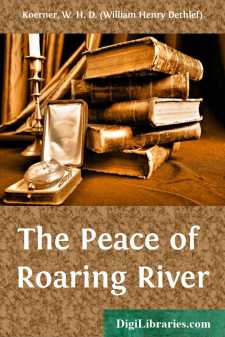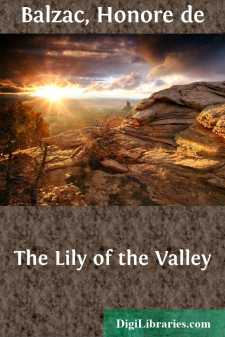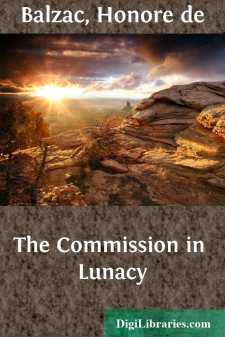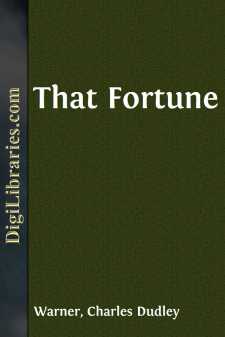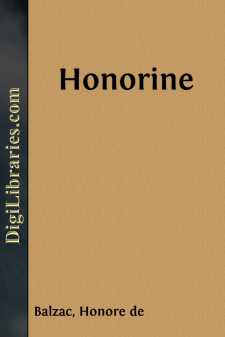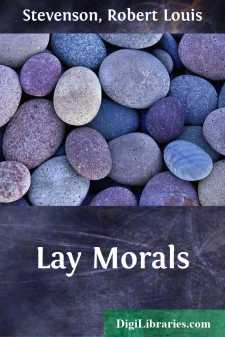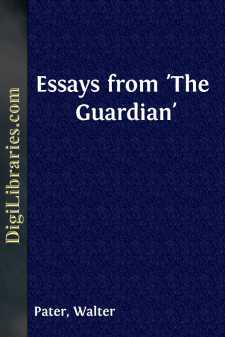Literary Collections
- American 84
- Ancient, Classical & Medieval 14
- Asian 1
- Australian & Oceanian 1
- Canadian 55
- Continental European 121
- English, Irish, Scottish, Welsh 179
- Essays 160
- General 24
- Letters 46
- Middle Eastern 1
Literary Collections Books
Sort by:
by:
Andrew Lang
ACT I TABLEAU I The Double Life The Stage represents a room in the Deacon’s house, furnished partly as a sitting-, partly as a bed-room, in the style of an easy burgess of about 1780. C., a door; L.C., second and smaller door; R.C., practicable window; L., alcove, supposed to contain bed; at the back, a clothes-press and a corner cupboard containing bottles, etc. Mary Brodie at needlework; Old...
more...
The Woman Scorned To the village of Carcajou came a young man in the spring. The last patches of snow were disappearing from under the protecting fronds of trees bursting into new leaf. From the surface of the lakes the heavy ice had melted and broken, and still lay in shattered piles on the lee shores. Black-headed chickadees, a robin or two, and finally swallows had appeared, following the wedges of...
more...
CARLYLE The accomplishments of our race have of late become so varied, that it is often no easy task to assign him whom we would judge to his proper station among men; and yet, until this has been done, the guns of our criticism cannot be accurately levelled, and as a consequence the greater part of our fire must remain futile. He, for example, who would essay to take account of Mr. Gladstone, must...
more...
by:
Honore de Balzac
CHAPTER I. TWO CHILDHOODS To what genius fed on tears shall we some day owe that most touching of all elegies,—the tale of tortures borne silently by souls whose tender roots find stony ground in the domestic soil, whose earliest buds are torn apart by rancorous hands, whose flowers are touched by frost at the moment of their blossoming? What poet will sing the sorrows of the child whose lips must...
more...
by:
Honore de Balzac
THE COMMISSION IN LUNACY In 1828, at about one o'clock one morning, two persons came out of a large house in the Rue du Faubourg Saint-Honore, near the Elysee-Bourbon. One was the famous doctor, Horace Bianchon; the other was one of the most elegant men in Paris, the Baron de Rastignac; they were friends of long standing. Each had sent away his carriage, and no cab was to be seen in the street;...
more...
On a summer day, long gone among the summer days that come but to go, a lad of twelve years was idly and recklessly swinging in the top of a tall hickory, the advance picket of a mountain forest. The tree was on the edge of a steep declivity of rocky pasture-land that fell rapidly down to the stately chestnuts, to the orchard, to the cornfields in the narrow valley, and the maples on the bank of the...
more...
by:
Voltaire
INTRODUCTION François Marie Arouet, who called himself Voltaire, was the son of François Arouet of Poitou, who lived in Paris, had given up his office of notary two years before the birth of this his third son, and obtained some years afterwards a treasurer’s office in the Chambre des Comptes. Voltaire was born in the year 1694. He lived until within ten or eleven years of the outbreak of the...
more...
by:
Honore de Balzac
HONORINE If the French have as great an aversion for traveling as the English have a propensity for it, both English and French have perhaps sufficient reasons. Something better than England is everywhere to be found; whereas it is excessively difficult to find the charms of France outside France. Other countries can show admirable scenery, and they frequently offer greater comfort than that of France,...
more...
In our long voyage on the yacht Casco, we visited many islands; I believe on every one we found the scourge of leprosy. In the Marquesas there was a regular leper settlement, though the persons living there seemed free to wander where they wished, fishing on the beach, or visiting friends in the villages. I remember one afternoon, at Anaho, when my husband and I, tired after a long quest for...
more...
by:
Walter Pater
[3] THE making of an anthology of English prose is what must have occurred to many of its students, by way of pleasure to themselves, or of profit to other persons. Such an anthology, the compass and variety of our prose literature being considered, might well follow exclusively some special line of interest in it; exhibiting, for instance, what is so obviously striking, its imaginative power, or its...
more...


